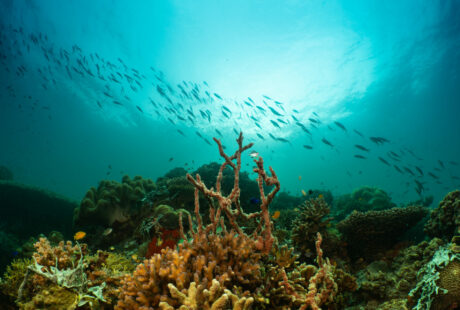On Tuesday 19 November, Ministers for European Affairs adopted a set of conclusions that stress that climate change is a direct and existential threat to life in oceans and seas globally. Member States unanimously agreed the need for immediate action against increasing threats to our ocean, seas and coastal areas and invited the Commission to put forward policy options.
The special report on the ocean and cryosphere in a changing climate, published recently by the Intergovernmental Panel on Climate Change, notes that our ocean is already undergoing deep changes that are impacting its chemical composition and temperature. Effects will increase in the future and will have far-reaching effects on the marine life and ecosystems that we depend on for our survival.
The Council’s request to the Commission to deliver proposals for new legislation will likely step up ambition to make the ocean more resilient to the inevitable changes wrought by the climate crisis. This request is yet another sign of the growing awareness of the importance of the ocean for our planet. More crucially, it could strengthen the protection of ocean ecosystems, prevention of biodiversity loss and marine litter, and sustainable use of marine resources.
However, governments cannot simply wait for new proposals: they must live up to the commitments they have already made. A number of crucial actions to increase the resilience of the ocean is within the gift of our governments to deliver immediately, without having to wait for the long policy process that the creation of a new legislation implies:
- As of now, governments can invest efforts to deliver healthy European seas. Although foreseen in the Marine Directive for 2020, progress is dramatically lacking. The steps on how to make this happen can be found in our recommendations.
- As of now, governments can ensure that Marine Protected Areas are truly protected. Over 12% of European seas are designated as Marine Protected Areas, but less than 2% have measures in place to ensure this protection in practice. The EU must honour its international commitment to protect biodiversity by the 2020 deadline.
- Next month, governments can stop overfishing in the North East Atlantic by setting fishing quotas in line with both scientific advice and the legal requirements under the Common Fisheries Policy.
Why wait for new legislation when current legislation would serve the same purpose if it was only implemented? We call on Member States to demonstrate their commitment to increase ocean resilience and implement existing European legislation without delay.
Our message to governments is simple: stop ignoring the law. Simply doing what you promised is the most timely, urgent and effective step that you can take to increase ocean resilience to climate change.
Posted on: 22 November 2019



